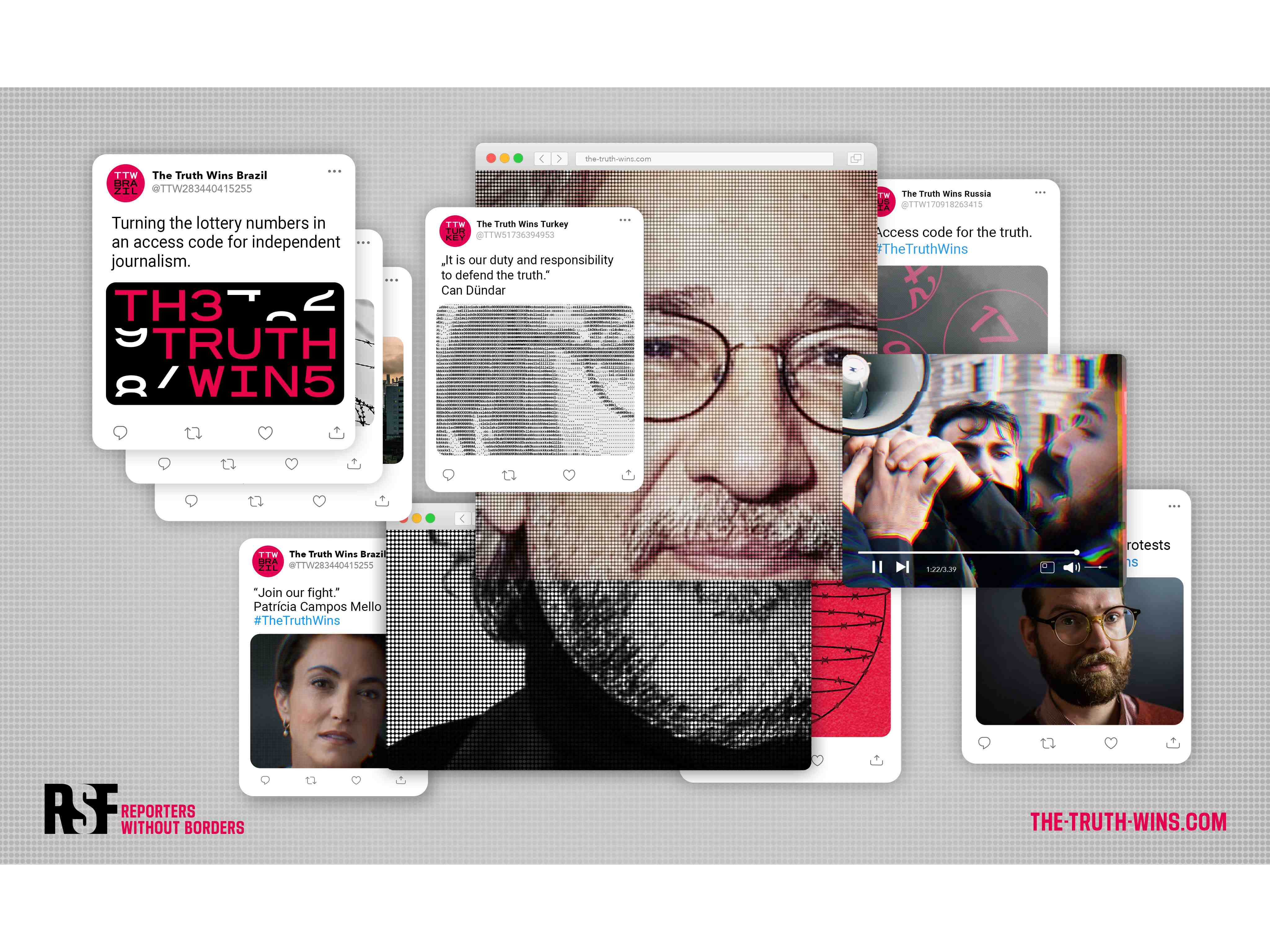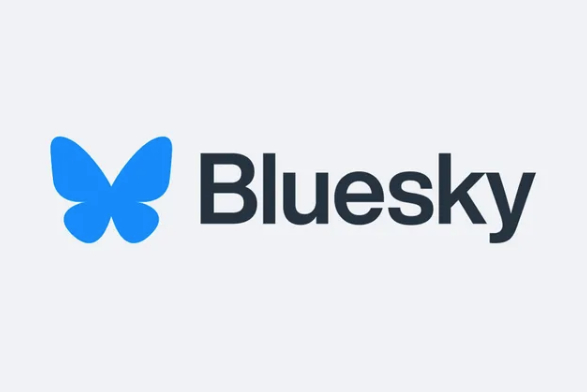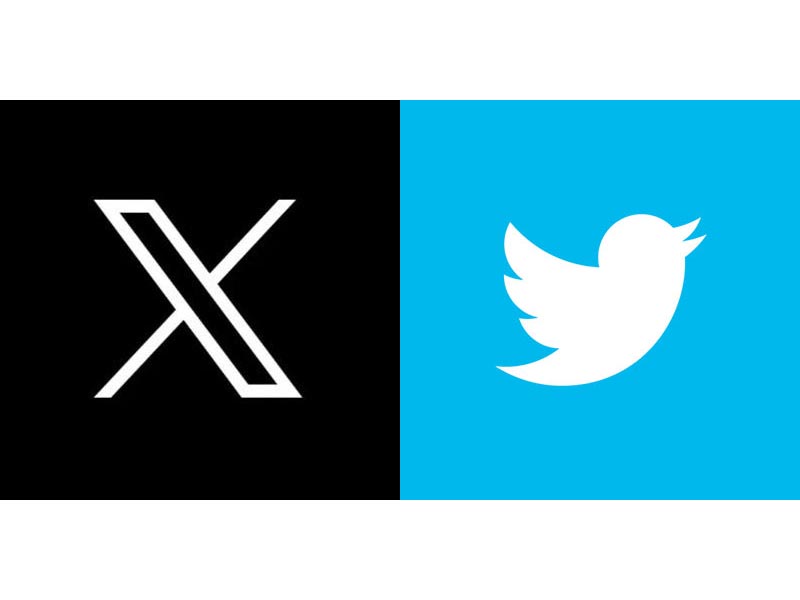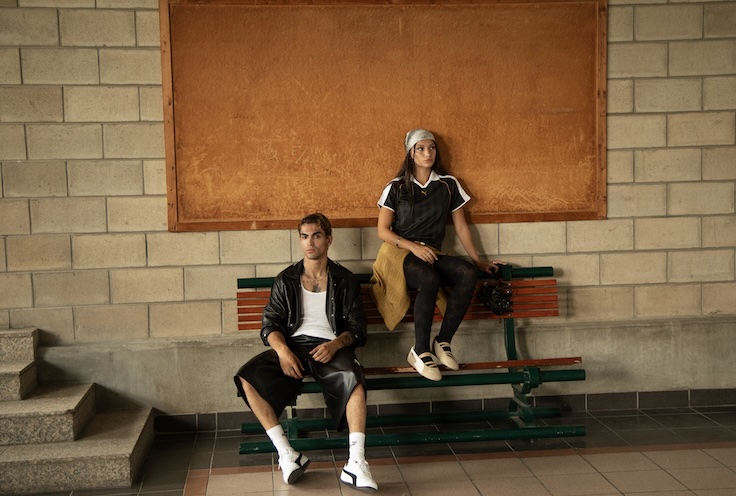News - Advertising
New campaign by DDB Berlin for RWB uses national lottery numbers to fight government censorship
by ArabAd's staff
March 14, 2022
.jpg) Advertisement
AdvertisementLaunched to coincide with the World Day Against Cyber Censorship on March 12th, 'The Truth Wins' campaign shines a light on the importance of press freedom. It uses an innovative strategy to provide easy access to censored articles and independent information by prominent journalists from Russia and Turkey, the countries most responsible for forcing Twitter to quash dissident voices, as well as Brazil, notorious for disinformation and journalist harassment.
From now on, in these countries, simply typing the national lottery numbers into Twitter will direct readers to information that is otherwise extremely difficult to access – archived through uncensorable blockchain networks. These constantly changing access codes keep the truth moving too fast for state censors – and do so by actually hijacking the same state-owned media responsible for publicizing these numbers.
Censorship is on the rise, globally. In particular, social media are being pressured by autocratic states to remove content and accounts that challenge their authority. There has been an especially rapid increase in takedown requests on Twitter, above all by the Turkish and Russian governments. Amid the Russian invasion of Ukraine, Reporters Without Borders (RSF) is being flooded with requests for support from censored Russian media.
Every time a journalist is censored, another source of independent information is lost – and in many countries this makes it harder and harder to find the truth online. But even in countries with tight control of the media, one thing always gets through: the lottery numbers.
That’s where RSF comes in. Cutting through the propaganda and the chatter, the national lottery numbers provide a foolproof point of access: you type that week’s Russian, Turkish or Brazilian lottery numbers into Twitter and other social media sites, and the results take you to a meticulously curated source of current, independent journalism that those states don’t want you to see. Featuring quality journalism from some of the highest-profile journalists and activists in those countries, the censored articles are provided in English and Russian, Turkish or Portuguese with newly added illustrations and interviews with independent journalists.
These resources are kept immune to any kind of censorship, stored in blockchain-based archives in a decentralized peer-to-peer storage network. Plus, with new lottery numbers appearing regularly, the access codes change too fast for states to censor them.
And the real beauty of it? That this not only bypasses state media control – it hijacks it. The access codes for this information, the lottery numbers, are distributed and heavily promoted by the same governments that censored it in the first place – fighting autocratic states with their own budgets. All at a time when access to independent information is more vital than ever.
In Russia, the situation is unfolding at great speed. RSF is partnering with OVD-Info, a human rights organization whose website has already been blocked by the state, and whose reporting on ongoing Russian protests is becoming increasingly crucial given today’s events. RSF are also now focusing their efforts and resources on their ‘Collateral Freedom’ program: using mirrors to provide access to blocked websites via new servers.
The Truth Wins is also providing a blockchain-based ENS-domain link that leads to an overview of independent news sources in Russia that are still accessible. This link cannot be blocked and will always stay online. It also allows visitors to find selected articles that are archived directly into the Etherium blockchain, making them resistant to any kind of censorship.
On the Turkish front, RSF is working with Can Dündar, former chief editor of Cumhuriyet, in exile in Germany – a journalist so well respected that Angela Merkel reportedly met with him before some visits to Turkey – as well as Turkish journalist Zübeyde Sari. In Brazil, Patricia Toledo de Campos Mello (Reporter and columnist at the daily Folha de S. Paulo, one of Brazil’s biggest news outlets) and Cecilia Olliveira (Investigative Journalist, El Pais, formerly The Intercept) are joining the initiative.
Tobias Natterer and Sandro Heierli from DDB Berlin take on this second campaign for RSF, after enormous success on 'The Uncensored Library', another groundbreaking initiative in which a huge archive of independent information was built within Minecraft. The Library, built within a virtual world, attracts young users globally to read banned and censored news articles, attracting headlines worldwide.
Ultimately, the campaign not only provides a lifeline for independent journalism in Brazil, Turkey and Russia – it also shines a light on today’s rapidly shapeshifting forms of state censorship, and on the persecuted voices it drowns out, or threatens with violence.
“Press freedom is an abstract and often political topic. I think creativity can help to highlight its importance and make it more approachable to people,” said Tobias Natterer, Senior Copywriter, DDB Berlin.
“I think the campaign provides an interesting user experience. Typing the lottery numbers into the Twitter search bar and seeing that it works, makes you feel like you just hacked censorship on your phone,” commented Sandro Heierli, Senior Art Director, DDB Berlin.
"The beauty of using blockchain for this initiative is that the information that was banned elsewhere is saved in a decentralised manner, making it free and resistant to any kind of manipulation or censorship. Blockchain technology is thus perfect for the mission “freedom of speech,” noted Saurabh Kakade, Creative Lead Digital, Hyperinteractive.
Credits:
Client: Reporters Without Borders
Christian Mihr / Managing Director
Kristin Bässe / Media and Public Relations Officer
Lisa Dittmer / Advocacy Officer for Internet Freedom
Jennifer Braunschweig / Assistant for Press Relations
Agency: DDB
Diana Sukopp / CCO
Tim Wettstein / CCO
Patrik Lenhart / Former Executive Creative Director
Bruno Damiao / Senior Creative Director
Thomas Koch / Senior Creative Director
Sandro Heierli / Senior Art Director / Project Lead
Tobias Natterer / Senior Copy Writer / Project Lead
Amaia Sarriguren / Art Director
Joana Vinheiro / Art Director
Edward Jasion / Award Manager
Donna Tobin / Global Chief Marketing & Communications Officer
Jemima Monies / Chief Marketing & Operations Officer
Rachel Geraghty / PR Director
Lindsay Bennett / Global Head of Marketing
Marianna Eboli / Global Social Media Manager
Digital Innovation Studio: Hyperinteractive
Dieter Pries / Innovation Director
Saurabh Kakade / Digital Creative Lead
Pavel Larionov / Creative Technologist
Maxim Pries / Lead Developer
Hernán Lozano Guerrero / Digital Designer
Judith Freiberger / Visual Designer
Diogo Borges / Project Manager
Amarnath Jayanti / Web3 & NFT Advocate
Siddhant Shrivastava / Web3 & Security Advocate
Samuel He / Journalist & Web3 Native
Music: Dahouse
Luciana Paes / Singer
Wonder Bettin / Composer
Lucas Mayer / Producer
Rodrigo Deltoro / Mix & Master
Larissa Miranda / Executive Producer
Film Production:
Mind and Image / Color Grading
Kling Klang Klong / Music Production
Molle&Korn / Film Production
Anna Moll / Creative Producer
Seeyourent / Technical Equipment Supplier
Freelancers:
Sascha Gerlach / Editing
Daniel Siegl / Motion Design
Jessica Hartley / PR
Callum McClean / PR
Constanze Schmitt / DOP
Jessica Fuchs / PR Specialists





.jpg)





.jpg)




